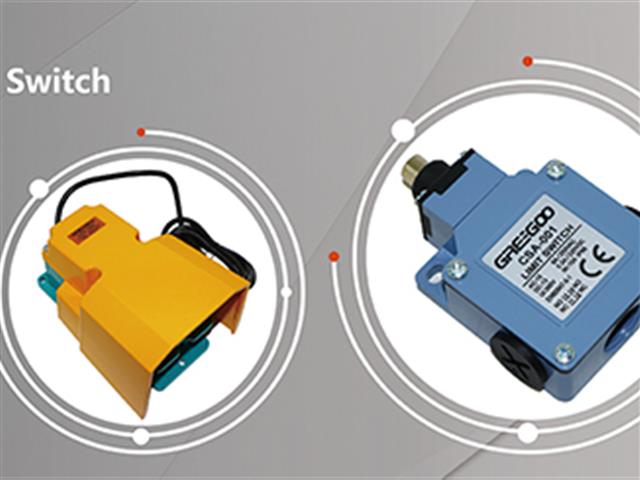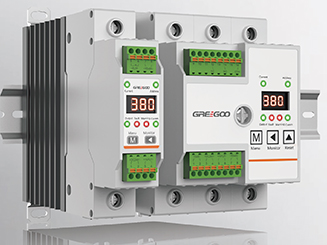News
Home News

Benefits of Pressure Contact Construction in SEMIPACK Thyristor Modules
Solder-free assembly offers several advantages over soldered (e.g., SEMIPACK 1) and bonded (e.g., SEMIPACK 0, 2, 3) constructions, particularly in high-power applications such as converters, regulators, and industrial controllers.
Read More
How to Choose Single-Phase or Three-Phase Thyristor Power Controllers: A Comprehensive Guide to Key Factors
Learn how to choose single-phase or three-phase thyristor power controllers. Explore key factors, applications, and benefits with Greegoo’s expert guide
Read More
How to Use a Vacuum Contactor? A Comprehensive Guide on Vacuum Contactors
Understanding well about Vacuum Contactor, A Comprehensive Guide
Read More
Differences Between TRIAC Output SSR (GD series SSR) and SCR Output SSR (GDH series SSR)
GD and GDH series single phase solid state relay, what's their difference?
Read More
Exploring the Smartguard Solid State Relay: A Game-Changer for Industrial Automation
Is the Intelligent SSR Right for You? Diagnostics, RS485, Modbus communication, Intelligent detection SSR, LED display.
Read More
Exploring the Unique Features of the GHFVC-160A/5kV Vacuum Contactor - 400Hz, Magnetic Latching and Rail Applications
400Hz high-frequency design, magnetic latching mechanism, and optimization for rail applications
Read More
Vacuum Contactor vs. AC Contactor, What is the Differences?
Vacuum contactors provide superior durability and low maintenance for high-voltage systems, while AC contactors are cost-effective and versatile for lower-voltage needs.
Read More
12KV Vacuum Contactor with Vacuum Circuit Breaker Integrated - Frequent Switching under Higher Breaking Capacity 31.5kA
12KV 630A to 1250A 31.5KA Vacuum Contactor + Vacuum Circuit Breaker, frequently switching under high breaking capacity
Read More
How to use DC Current Shunt? A Comprehensive Guide on DC Shunt Resistor
Understanding DC Current Shunts, A Comprehensive Guide.
Read More
Discover the Greegoo GB Series Fast Recovery Diodes: The Ideal Choice for High-Performance Power Electronics
Unleash the future of power electronics with the Greegoo GB Series—where performance, precision, and flexibility converge.
Read More
Discover the Power of Electromechanical Switches: Limit Switch vs Foot Pedal Switch vs Micro Switch
Upgrade your systems today and experience the power of electromechanical switches!
Read More
Intelligent Solid State Relay
Current digital display, MODBUS communication, RS485 port, Temperature detection, Phase loss detection, Panel function LEDs for operational status monitoring etc.
Read More













